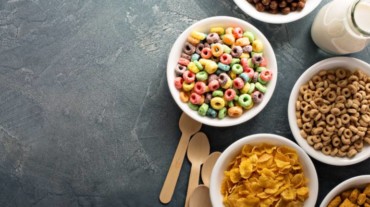
Expecting a baby is one of the most exciting experiences of a couple’s life. To make this journey smooth, an expectant mom should watch her eating habits, so that she can avoid any unpleasant symptoms due to the unhealthy eating practices. Watching what’s on your plate during pregnancy is important!
Winter offers a variety of foods to provide us with good nutrition. When you are pregnant, it is recommended to consume a balanced diet that includes all the basic five food groups such as cereals, pulses, fruits, vegetables, milk and its products and fats.
We have a variety of grain and cereals that are available to us in our country. Millet (bajra) is one such cereal, which is favoured during the winter season. There are many varieties of millet available today, including little millet, proso millet, finger millet, foxtail millet, kodo millet, and barnyard millet etc. They all differ from each other in color, texture, taste and nutritional value.
In a nutshell, millets are a good source of iron, protein, dietary fibre, potassium, antioxidants, calcium and folate. And all these nutrients are required much more during pregnancy. So, one should definitely include this grain in their diet.

Winter brings in a lot of fresh and juicy fruits like oranges, sweet lime, apple, apricots, guava and gooseberry that are full of nutrition. Consumption of seasonal foods is what can add value to your diet. During pregnancy, it is recommended to have vitamin C-rich foods to ensure better iron absorption in the body. These fruits are a great source of antioxidants and folate, and are low in calories too.
Seasonal vegetables not only taste good, they also contain the essential nutrients to suit the body’s requirement in this weather. Include fenugreek leaves, mustard leaves, spinach, amaranth greens, carrot, fresh peas, yam, sweet potato, beetroot, and drumsticks to your diet. Adding these veggies during pregnancy will provide innumerable health benefits, since they contain a variety of unique health-boosting nutrients like iron, calcium, potassium, phosphorus, magnesium, zinc, and vitamins like A, B1, B2, B3, B6, C, K, folic acid and fibre.
We are aware of the benefits of milk, especially during pregnancy. After all, it helps to build strong bones in the growing baby. During winter, you can use milk in a variety of preparations. These recipes enhance the taste of the milk and also nutrition. You can add milk to soups to add flavour and nutrition, or you can also have ginger turmeric milk or saffron milk.
Nuts and seeds provide healthy fats to the body as well as many other nutrients. Eating apricots, figs, and raisins during pregnancy is advised to boost the expectant mother’s iron intake, since they are prone to anemia. Walnuts, flax seeds and chia seeds contain omega-3 fatty acids, and aid in the child’s neurodevelopment.

Fats and oils consumption plays a vital role for the fat soluble vitamin absorption in the body. And during pregnancy, they help in the baby’s brain and eye development. Nowadays, a wide variety of oils and fats are available in the market. Choose grass-fed animal fats or cold pressed oils for maximum benefit.
It’s very important to keep yourself hydrated during pregnancy to prevent yourself from constipation, as well as to maintain the amniotic fluid volume. Drink liquids throughout the day, even if you are not feeling thirsty. You can increase your liquid intake by enjoying different soups like tomato beetroot soup, spinach soup, broccoli soup, and mushroom soup during this season.
Select Topics of your interest and let us customize your feed.
PERSONALISE NOW1. In winter, the desire to drink hot liquids increases. Due to this, some people start drinking too much tea or coffee throughout the day. But for moms-to-be, excess consumption will block the iron absorption in the body, and can lead to anemia and digestive issues.
2. During this season, our body craves for rich food and hence fried food consumption increases. But during pregnancy, excess consumption can lead to heartburn, acidity or excessive weight gain and can lead to gestational diabetes too.
3. It is also important to control your sugar cravings, especially during winter. So, one should watch their total sugar intake that you are consuming in the form of chikkis, panjiri, pinni etc.
4. Avoid over-consumption of ghee in the form of gajar ka halwa or in saag. Excess calorie intake can cause extra weight gain in pregnancy.